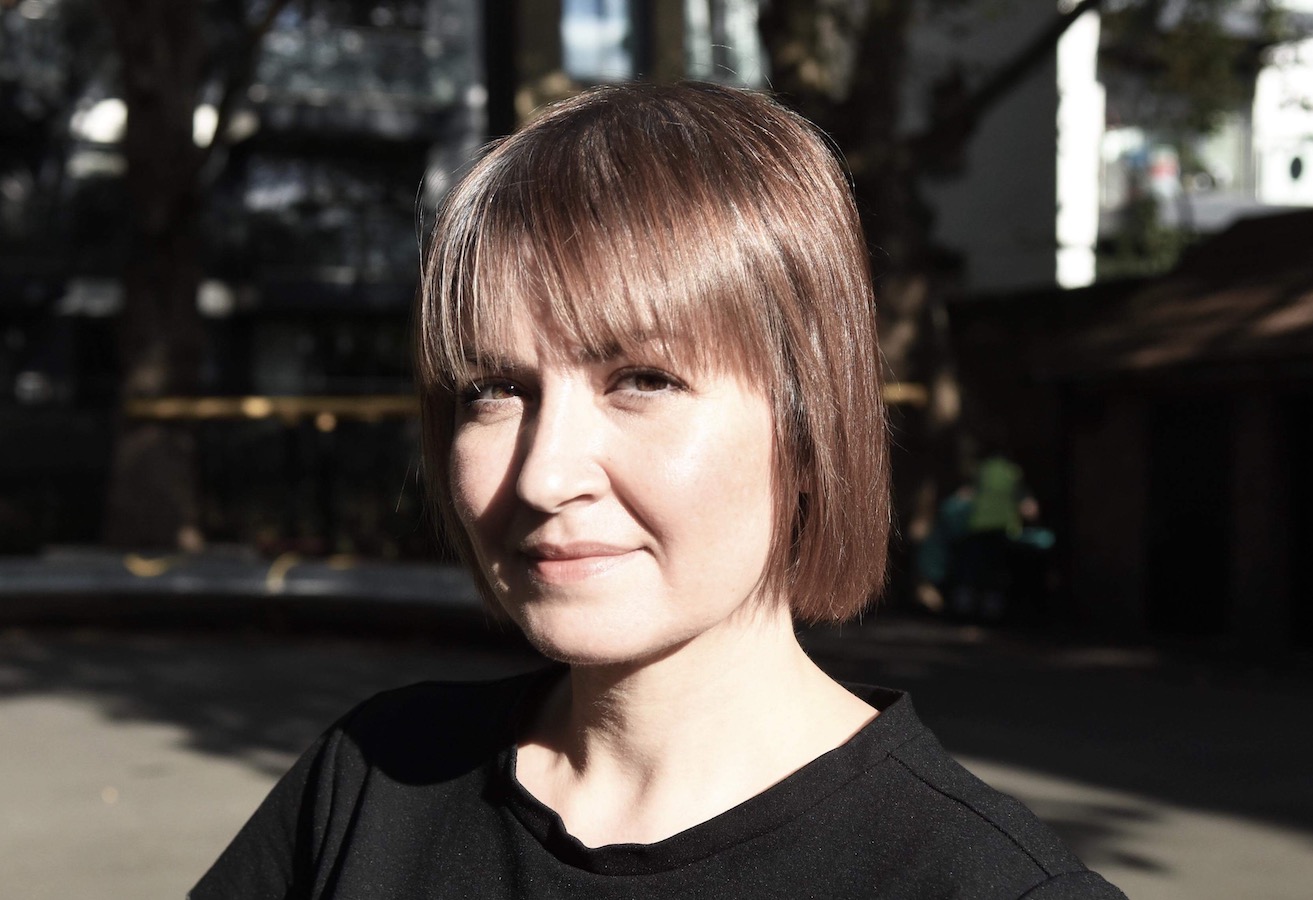DUBAI: What happens when the physical world around you disappears in the blink of an eye, your place of residence is no more, your country is in ruins, and life as you knew it is no more?
When the Danish Arts Foundation, for the 58th Venice Biennale, commissioned “In Vitro,” a two-channel sci-fi film co-directed by Larissa Sansour and Soren Lind, to be released for the event in May 2019, no one would have expected that the questions addressed in the flick, which echo back to the paradoxical nature of memory in modern-day Palestine, would ring so true in today’s world, gripped by the coronavirus disease (COVID-19) pandemic and the recent giant explosion in Beirut that have left Lebanon and its people in ruin.
The film is now screening at the Jameel Arts Center in Dubai as part of its Artist’s Rooms until Jan. 3, 2021.
Staged in the town of Bethlehem decades after an ecological disaster that has decimated the town, it tells the story of a subterranean orchard and its young 30-year-old female successor who will never see the town that she is now destined to replant.
The black-and-white film unfolds under the destroyed biblical town in a vast bunker that has been converted into an orchard using the heirloom seeds gathered during the final days before the disaster.

The film is now screening at the Jameel Arts Center in Dubai as part of its Artist’s Rooms until Jan. 3, 2021. (Supplied)
The young successor converses with the orchard’s dying 70-year-old founder about the future of the town they are planning to rebuild above the ground. The discussion becomes challenging between the two women.
The younger woman has no experience of the town she must rebuild whereas the founder has many recollections. What is the role of memory in human survival? Do we need to remember the past in order to reconstruct in the future?
The film revolves around the themes of exile, trauma, and collective and individual memory — themes particularly pertinent to current times.
East Jerusalem-born Sansour, 47, said: “In many ways I feel like we are living the apocalypse now. Overnight during the lockdown, we couldn’t leave our homes. Everything changed.
“I have been very interested in memory studies and psychology and how our memory works. The film addresses personal memory and collective memory and how we actually consider personal is also part of the collective.
“As for memories, you don’t know how they became cemented in your thoughts. Considering the Palestinian diaspora, the second generation and third generation and how they perceived their parents’ memory as their own memory as if they had experienced the same things as their parents — this is indicative of trauma and traumatic experiences and I feel this is relevant to what we are going through right now with the COVID-19 pandemic.

The film revolves around the themes of exile, trauma, and collective and individual memory — themes particularly pertinent to current times. (Supplied)
“What is shocking in the pandemic is to see how overnight everything you knew was possible or not possible has completely changed.
“The fact that you couldn’t leave yourself and the world that you thought only belonged to nightmares actually now is just outside of your house is unfathomable,” she added.
“In Vitro” is also a study on the idea of national memory and how the identity of nations is built on memory.
“Who is the storyteller of a nation’s history and how does this influence the collective memory of its people? How does it then translate to the idea of global memory and the rise of nationalism that we are seeing now? In the face of our present disasters our value systems are now in question,” said Sansour.
Such a generational transition of memories, trauma, and pain could easily be related to the Lebanese people and their historical need to constantly rebuild after countless invasions, wars, and catastrophes.
The big question: Do you need to take away personal and collective memory — a nation’s past and a nation’s trauma — in order to start a new life?

“In Vitro” is a two-channel sci-fi film co-directed by Larissa Sansour and Soren Lind. (Supplied)
“The trajectory for ‘In Vitro’ was the Palestinian experience. It was a microcosm of what is to come for the world,” added Sansour.
“We (Palestinians) have experienced a complete destruction of structure and being in a zone where we are constantly remembering the tragedy of what happened to Palestinians with the Nakba (exodus) in 1948. The experience sticks with us as a form of identity. We project the idea of a Palestinian state in the future and yet the present has become this lost space — it is a no space.
“What we hold onto and decide not to have is what the film questions. The new generation (of Palestinians) thinks that maybe we could start to have a new tabula rasa (blank slate) but the old generation is saying that we cannot forget and make the same mistakes.”
While Sansour refers specifically to the Palestinian experience in the film, she noted that the ideas could also be applied to humanity at large.
“How do we find ways of defining ourselves, our identity, particularly in relation to the traumatized Palestinian psyche where you hold on to things that become artifacts rather than objects that have continuous, chronological history, that live on and have the possibility of a future?”
For more information, visit www.artjameel.org.







0 التعليقات:
إرسال تعليق